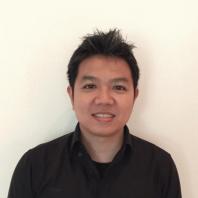![]()
![]()
Research Support Office Research Advancement Division. Tokyo University of Agriculture and Technology
| TEL | +81-42-367-5944 |
|---|---|
| FAX | +81-42-367-5946 |
This program is supported by MEXT’s scientific technology human resource development fee grant, "Program to Disseminate Tenure Tracking System".
Home > Tenured Faculties > Mori Tetsushi

Mori Tetsushi

| Affiliation | Organization for Promotion of Tenure-track System / Institute of Engineering |
|---|---|
| Division | Division of Biotechnology and Life Science |
| Research field | Bioengineering (Microbiology) |
| Keyword(S) | Environmental microorganisms, Bacterial metagenome, Single-cell analysis |
| Url | http://web.tuat.ac.jp/~moritets/ |
| Research experience | ・Sep.2004-Mar.2005:Intern, Bioprocessing Technology Institute (BTI), Singapore |
|---|---|
| Educational background | ・Apr.1998-Mar.2002:Bachelors in Engineering, Department of Biotechnology and Life Science, Tokyo University of Agriculture and Technology |
| Awards | * The latest information is shown at the member's website. |
| Selected papers and publications | * The latest information is shown at the member's website. |
The natural environment hosts countless microorganisms, where many of these microbes are known to harbor unique genetic traits required for them to live in a specific environment. However, we are still in the dark on why exactly do these microbes harbor these unique genetic traits. For example, do these microbes acquire these traits just for temporal survival or do they acquire them to allow for long term survival, are still questions that need to be enlighten. Based on our speculation that the environmental bacterial community can be classified into 1) primary (microbes originally thriving in a designated environment), 2) secondary (microbes trying to adapt to a designated environment) and 3) tertiary (microbes that temporarily reside within the designated environment) microbial classes, our goal is to try to understand the interaction occurring within these classes and also the ecology, role and genetic background of environmental microorganisms. To achieve this, we try to develop new analytical tools and techniques using molecular biology based apporaches.
Our current research topics includes:
1. Development of techniques for specific isolation of bacterial strains from environmental bacterial population.
2. Research related to whole genome amplification of single bacterial cells to allow the further understand the genetic traits of microorganisms
3. Exploitation of bacterial metagenomes for the screening of novel and highly active refinery enzymes. We are currently focused on the screening of enzymes depolymerizing macroalgae polysaccharides (alginate, laminaran, etc.).
Since TUAT has a long history in the employment of tenure-track faculties, the university has a well-established system. The university staff and faculty has provided their full support to assist me in smoothly setting up my laboratory and research environment. In addition to research, TUAT also provides a mentor system where young researchers can work with senior faculty to allow them to adapt quickly to the education system.
I am extremely grateful to TUAT for providing a great working environment to tenure-track faculties to start off their new journey as future leading researchers and educationists. Using this as a great opportunity and working together with the faculty and staff of TUAT, I hope to contribute to nurture highly potential students and also hope that I would be able to push my research to the next level.